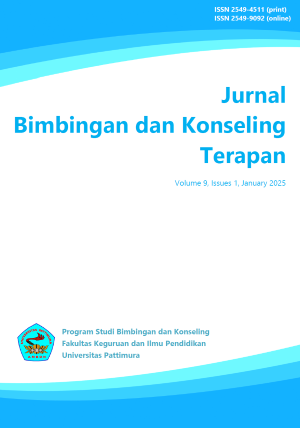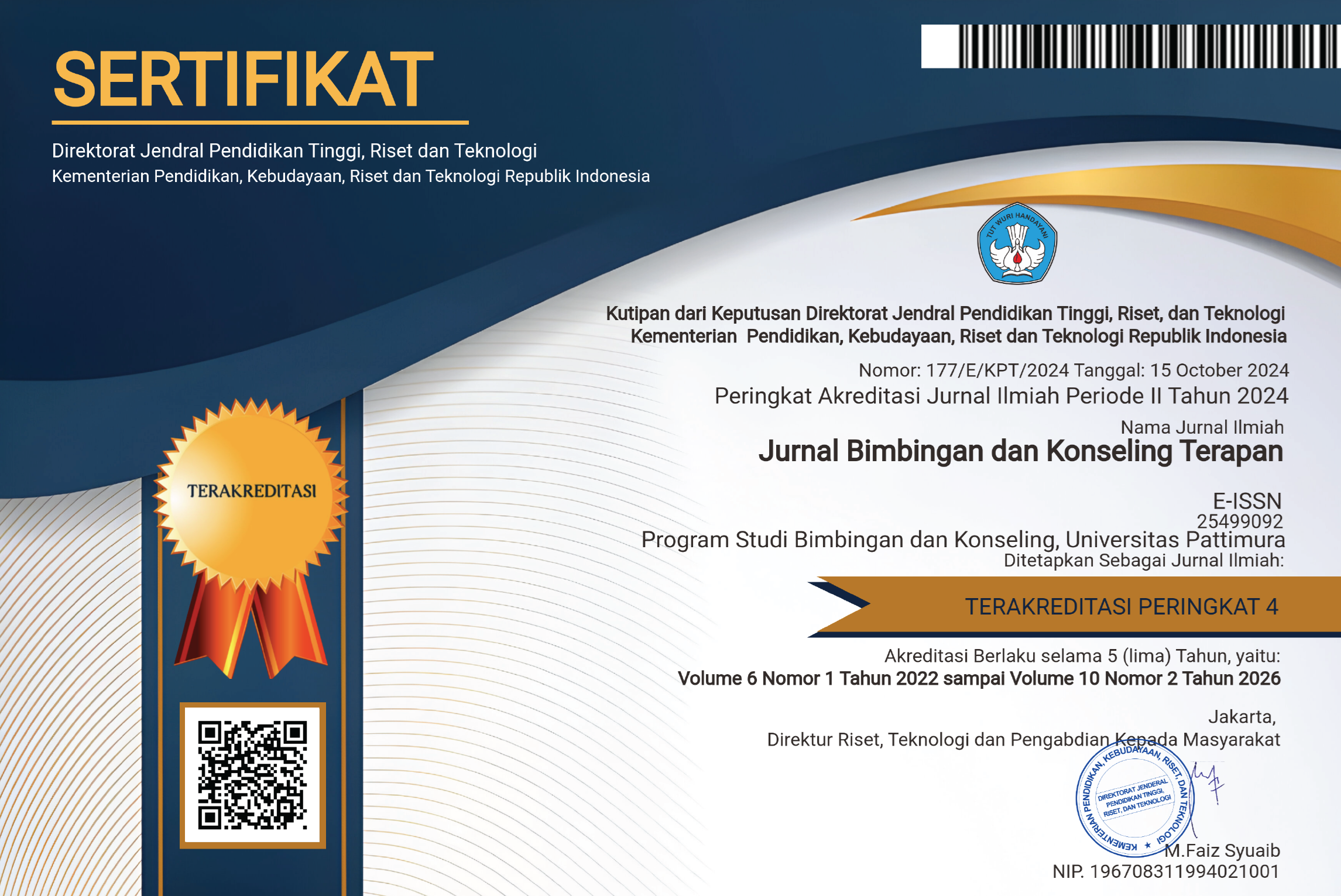Exploring the Impact of Gratitude on Subjective Well-Being Among Fatherless: Implications for Counseling Interventions
Abstract
This study examines the relationship between gratitude and subjective well-being among fatherless university students in Solo Raya, Indonesia. With Indonesia's increasing rates of fatherlessness, understanding its psychological impact on young adults is crucial. Through quantitative correlational analysis involving 186 students, the research investigates how gratitude, as a psychological resource, contributes to subjective well-being, encompassing life satisfaction and positive affect. Findings indicate a significant positive correlation between gratitude and subjective well-being, with gratitude accounting for 33.17% of the variance in well-being. This suggests that gratitude fosters emotional resilience, supporting students in coping with the challenges of fatherlessness. Descriptive and regression analyses reveal a medium to high concentration of gratitude and subjective well-being among participants, indicating gratitude’s potential as a stabilizing factor in their lives. The study further discusses demographic factors, finding minimal gender differences in gratitude expression, and highlights counseling implications. By integrating gratitude interventions, counselors can aid students in developing emotional stability, enhancing social connections, and potentially improving physical health outcomes. This study underscores the importance of fostering gratitude in educational counseling, contributing to a positive campus culture and emotional support for fatherless students. Future research could explore long-term effects of gratitude practices across diverse demographics to provide deeper insights into enhancing well-being in single-parent households.












